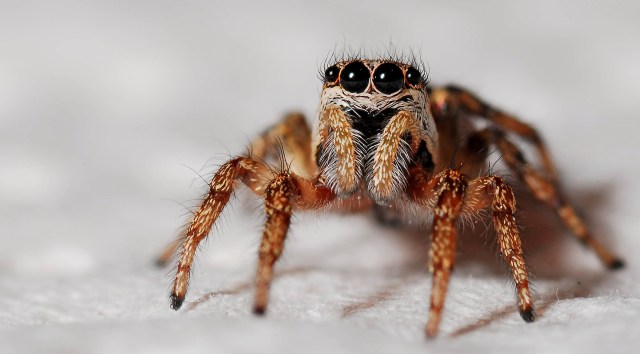
It is a huge biomass compared to what humans run through in fish and meat per year, a mere 400 tons, or half the spider´s insects yearly ration.
These unique organisms, otherwise consider pests themselves, would bear dire biological implications were they to disappear. Just think of nature´s work of replacing spiders with other predators, and humans trying to deal with an 800 million tons surplus of crawling insects including roaches, flies, and other invertebrates part of which would show up in homes uninvited.
A study by researchers Martin Nyffeler and Klaus Birkhofer, at the Universities of Basil in Switzerland, and Lund in Sweeden, centered on the role of the eight-legged arthropods’ abilities to control insect pests.
These scholars came up with data from 65 previous studies involving the number of individuals making up the populations of seven biomes on the planet, such as forests, tundra, and others. And it may come as a shock to know that there are about 25 metric tons of spiders on the planet as a grand total, a quantity not easily fathomed.
Consequently, they were able to estimate, based on the insects’ biology and eating habits that “400 to 800 million tons of prey are being killed by spiders each year”.
Voracious appetite
Whales, seabirds and even man himself shy away from the spiders when it comes to overall food intake. Whales do in 280 to 500 million tons of seafood. Humans, on the other hand, consume an estimated 400 million tons of fish and meat in the same time period, whereas the total seabird population eats an approximate 70 million tons of fish and other seafood.
Nyffeler, the lead researcher for this study, ponders “These estimates emphasize the important role that spider predation plays in semi-natural and natural habitats, as many economically important pests and disease vectors breed in those forest and grassland biomes,”
However, in the world´s food web spiders have their biological population control via their own predators – some 8.000 to 10.000-, including 3.000 to 5.000 bird species, parasites such as ticks, and the common toads, lizards and even monkeys. So, it is not like the planet would be taken over by these incredible creatures.
The lesson to learn from this important study is that spiders significance and contribution need not be overlooked, and must be praised.
Or as Nyffeler puts it, “We hope that these estimates and their significant magnitude raise public awareness and increase the level of appreciation for the important global role of spiders in terrestrial food webs”
[via treehugger]
































